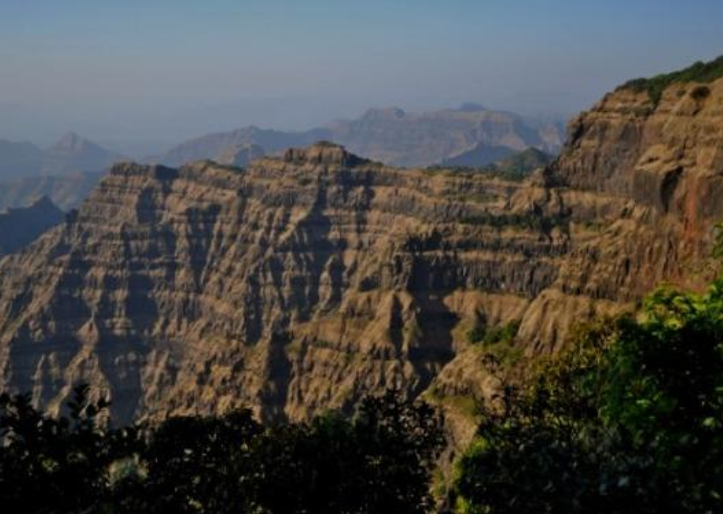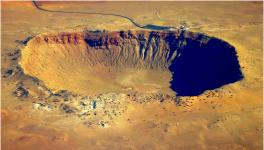Dinosaurs’ Extinction May Have Roots in Volcanic Eruptions in India: New Study Suggests

Image Courtesy: Wikipedia. Image for representational use only
Series of volcanic eruptions, across the landmass that constitutes present-day India, could have impacted the extinction of the dinosaurs from Earth, new studies published in Science have indicated. The volcanic eruptions known as the ‘Deccan traps’ impacted the global environment in such a way that survival became increasingly difficult for many plants and species, including the dinosaurs. The Deccan traps erupted much before the massive asteroid strike-- an event which influenced the global climate to become unfit for the survival of dinosaurs.
A decade back, in the Gulf of Mexico, a large impact crater was discovered. This indicated that a massive asteroid had struck the Earth some 66 million years ago. This event caused huge tsunamis and covered the sun with ash, thus, causing a surge in global temperature.
But, apart from the asteroid strike, countless volcanic eruptions- the Deccan traps- opened up, releasing a flood of lava for almost 1 million years. The greenhouse gases emanating from these eruptions could have raised the global temperature and poisoned the oceans—enough to put lives in a perilous state, before the asteroid strike happened.
These publications in Science have shed some light on the long debates about the uncertainty of these eruptions. These studies provide almost precise dates of the eruptions and also, importantly, reveal the fact that the Deccan traps had a role in the extinction of the dinosaurs.
The Earth’s climate had gradually been changing much before the asteroid strike took place. Some 0.4 million years before the strike, the Earth was witnessing a rise in average temperature by 50C. It was believed that the Deccan traps were responsible for the surge in global temperature, hinting that over 80 per cent of the lava had erupted before the asteroid strike.
But the new studies contradict the older views. The study led by Courtney Sprain of University of Liverpool, UK, collected the basaltic rocks from India’s Western Ghats, home to some of the lava deposits from the Deccan traps. With the help of the argon-argon dating technique, they could find the dates of formation of the basaltic rocks, giving a direct hint of the timing of the eruptions.
Their research showed that even though the eruptions from the Deccan traps began some 400,000 years before the asteroid strike, they geared up much after the asteroid had struck the Earth—they released 75 per cent of the total volume of lava in the 600,000 years that followed the strike. This evidence also supports what was thought previously—that the two events are directly related; the asteroid strike was so impactful that it led the Deccan traps to erupt furiously.
The second study used different ways to find the dates of the Deccan traps. The team led by Blair Schoene, a geochronologist of Princeton University, US, analyed the zircon crystals found in the layers of the basaltic rocks. Zircons can be precisely dated using the technique in which decay of uranium to lead is calculated, which gives the precise timing of the formation of the layers of basaltic rocks. The team sampled zircon—a rare element, from 140 sites.
The dates found from this study suggest that the Deccan traps occurred through four intense pulses rather than continuously. One pulse occurred right before the asteroid strike occurred. According to Schone, it was the first pulse before the strike that did play a role in the mass extinction of species. He expresses his apprehensions about how exactly these eruptions could directly cause the extinctions.
Although these studies show a few differences in their conclusion, but they largely agree on the timing of the Deccan traps.
Get the latest reports & analysis with people's perspective on Protests, movements & deep analytical videos, discussions of the current affairs in your Telegram app. Subscribe to NewsClick's Telegram channel & get Real-Time updates on stories, as they get published on our website.

















